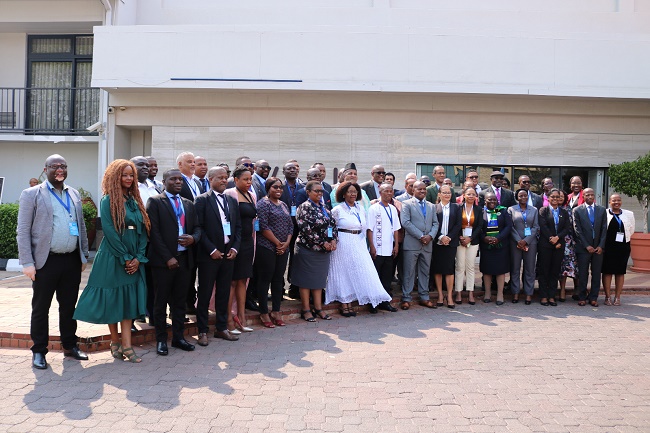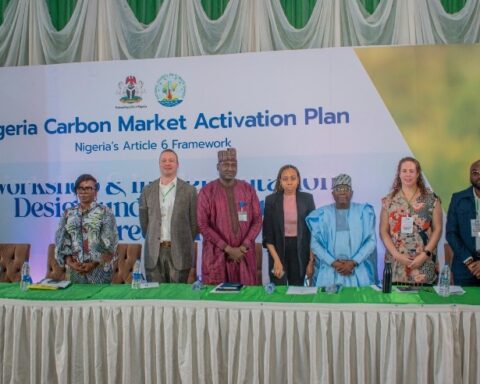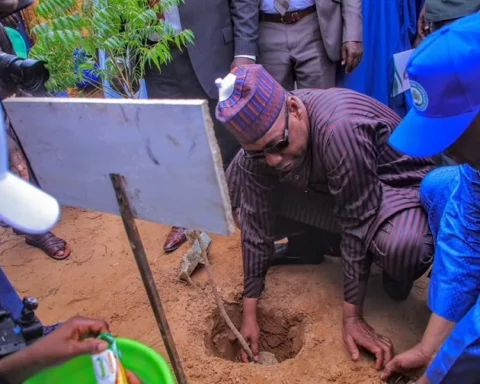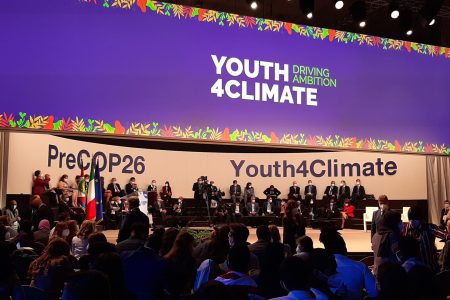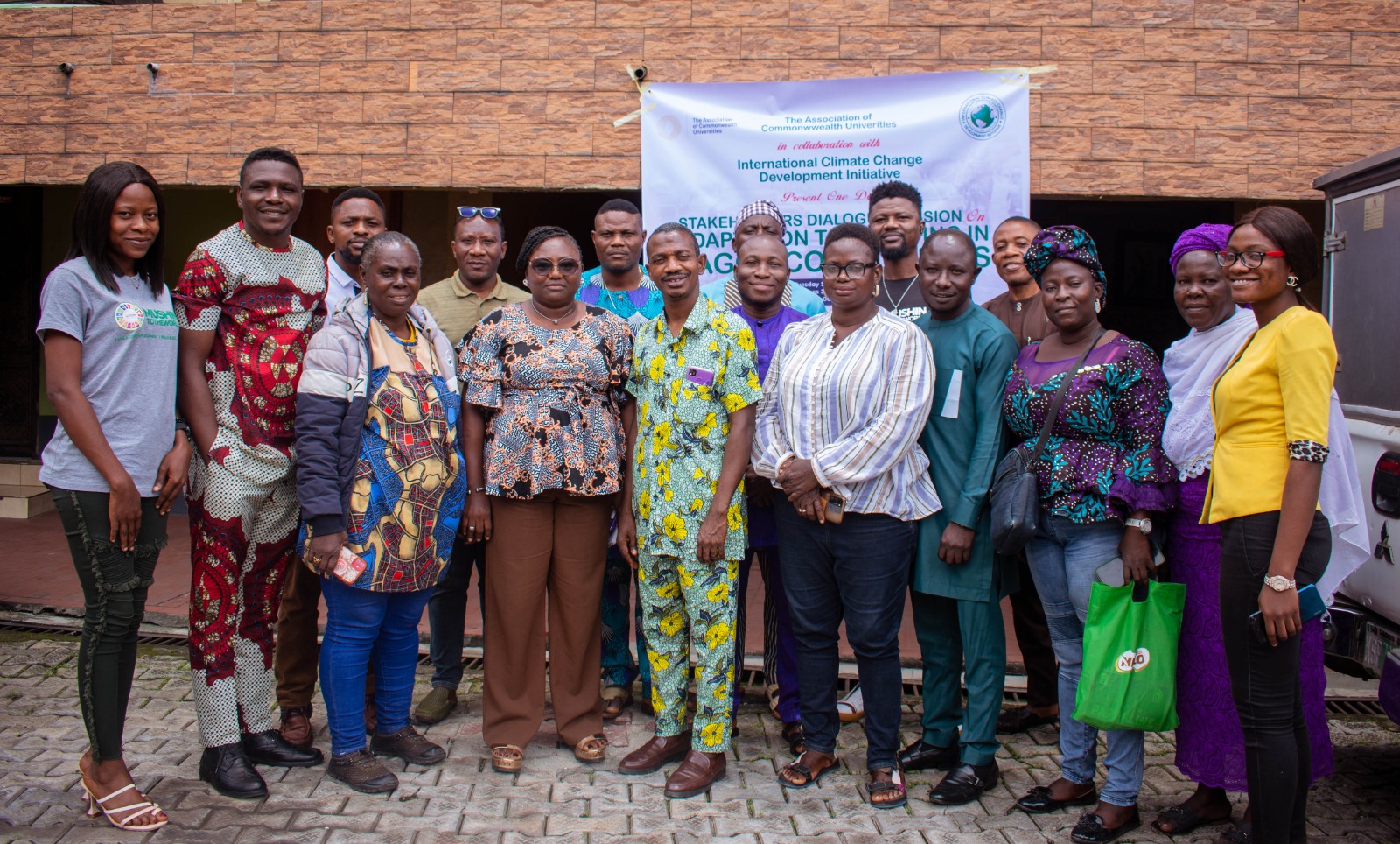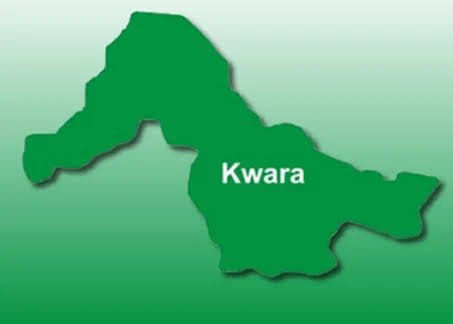Chair of the African Group of Negotiators on Climate Change (AGN), Ephraim Mwepya Shitima, has called for African countries to put in place measures to encourage the active participation of legislators in climate action.
Mr. Shitima made the call while speaking at the Southern African regional Parliamentary meeting on climate change held in Gaborone, Botswana, on September 25, 2023, organized in collaboration with the Ministry of Environment and Tourism of Botswana, United Nations Development Programme (UNDP) Botswana, the African Union Development Agency (AUDA-NEPAD) and other partners.
He noted the important oversight role that Parliaments play in policymaking and implementation through their legislative and oversight mandates such as approval and monitoring of national budgets.
“Under the Paris Agreement, Parties have made commitments through Nationally Determined Contributions. These national commitments require resources, and our Parliamentarians are critical as they not only approve national budgets but also provide the oversight role of monitoring budget performance and implementation.
“As AGN, we therefore believe that our lawmakers across the continent must actively be involved in climate processes. We are grateful to partners such as AGNES for their initiative to engage our parliamentarians, and welcome efforts from other partners to get lawmakers involved,” said Mr. Shitima.
According to the African Group of Negotiators Experts Support (AGNES), despite their critical role, parliaments in Africa are least prepared to effectively participate and play their oversight role in the implementation of climate response actions.
While legislation has a crucial role to play by capturing political momentum and establishing strong systems to drive delivery of the desired national and international climate commitments, only a few countries in Africa have so far put in place relevant climate change legislation (Kenya, Nigeria, and Uganda).
Declaring the meeting open, Botswana’s Acting Minister of Environment and Tourism, Mabuse Pule, said climate change legislation must be part of a larger policy framework that supports equitable, sustainable, and inclusive development.
“Climate change action presents numerous significant challenges for legislators,” said Pule. “For starters, this phenomenon is inextricably tied to a wide range of other challenges and development goals.
“Climate change will have an extreme and long-term influence on agriculture, food production, energy availability and production, health, and water security, to name a few. As a result, climate change legislation must be part of a larger policy framework that supports equitable, sustainable, and inclusive development.”
George Wamukoya, AGNES Team Lead in her remark said Parliaments have a fundamental role in budget approval (public expenditure and revenue-raising) decisions and holding government to account.
“In most countries, there is very little relationship between the NDCs and the national budgets, yet most countries have indicated in their NDCs domestic financing contribution in the implementation of their NDCs.
“It is against the foregoing that AGNES has been convening regional parliamentary meetings to engage lawmakers and raise awareness on their critical role in supporting climate action at international, regional, national, and local levels,” she said.
In recent years, the international response to climate change has become increasingly elaborate and prominent, requiring countries to prepare, communicate, and maintain a five-year cycle of nationally determined contributions (NDCs). Countries are thus encouraged to align NDCs with their long-term low greenhouse gas emission and climate resilient development strategies (LTSs).
And this was a point emphasized by the United Nations Development Programme (UNDP), Resident Representative for Botswana, Balázs Horváth, who also highlighted the importance of Africa’s unified voice as the continent prepares for COP28.
“This workshop has come at an opportune moment when the international community is preparing for COP 28 and the importance of articulating a common African voice at COP28 and arguing for allocation of responsibility for financing the transition toward a net-zero world according to each country’s share in cumulative GHG emissions to date,” said Horváth.
By Dare Akogun


